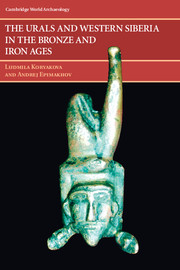Foreword, by Philip L. Kohl
Published online by Cambridge University Press: 03 February 2010
Summary
I remember taking an overnight flight from Leningrad (St. Petersburg) to Kyrgyzia (Kyrgyzstan) via Sverdlovsk (Ekaterinburg) in late winter 1986. Just before landing in Sverdlovsk, the stewardess asked me to remove the earphones of a primitive portable cassette player that I had just turned on. Her manner was brusque and peremptory. She demanded to know what I was doing, what I was listening to, and claimed that many passengers believed that I – an obvious, solitary, and clearly suspicious American – must be receiving hidden instructions from someone in the West, perhaps Washington, on this then-novel listening device. I handed her the cassette player and had her listen to the Brahms violin concerto I had been enjoying…. Such was Cold War paranoia even as late as the early Gorbachev years in the closed military-industrial center of Sverdlovsk nestled on the Siberian side of the Ural mountains, the same city over which Gary Powers's U2 spy plane had been blown out of the sky in 1960.
In her preface, Ludmila Koryakova refers to the fact that the Urals and western Siberian areas covered in this volume remained a highly restricted military zone until the breakup of the Soviet Union in 1991. Until that time, contacts with the West were practically nonexistent. This isolation affected all fields of knowledge, including archaeology.
- Type
- Chapter
- Information
- Publisher: Cambridge University PressPrint publication year: 2007



